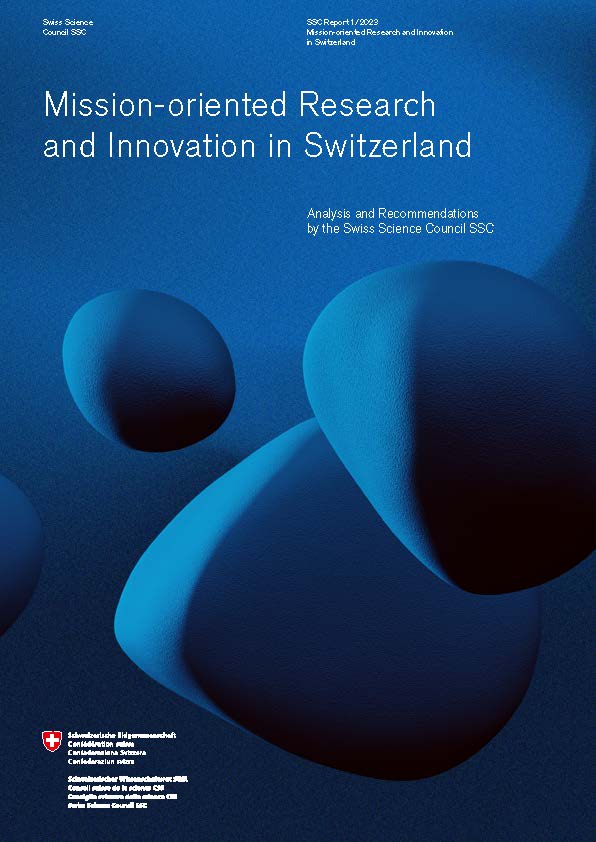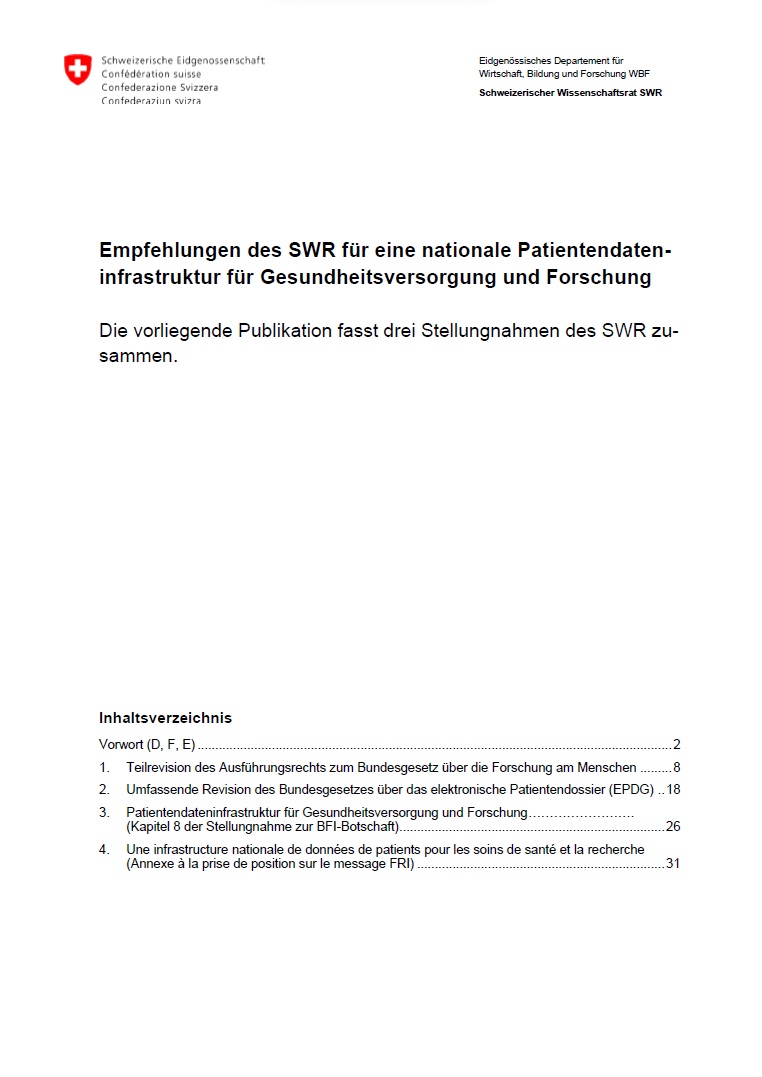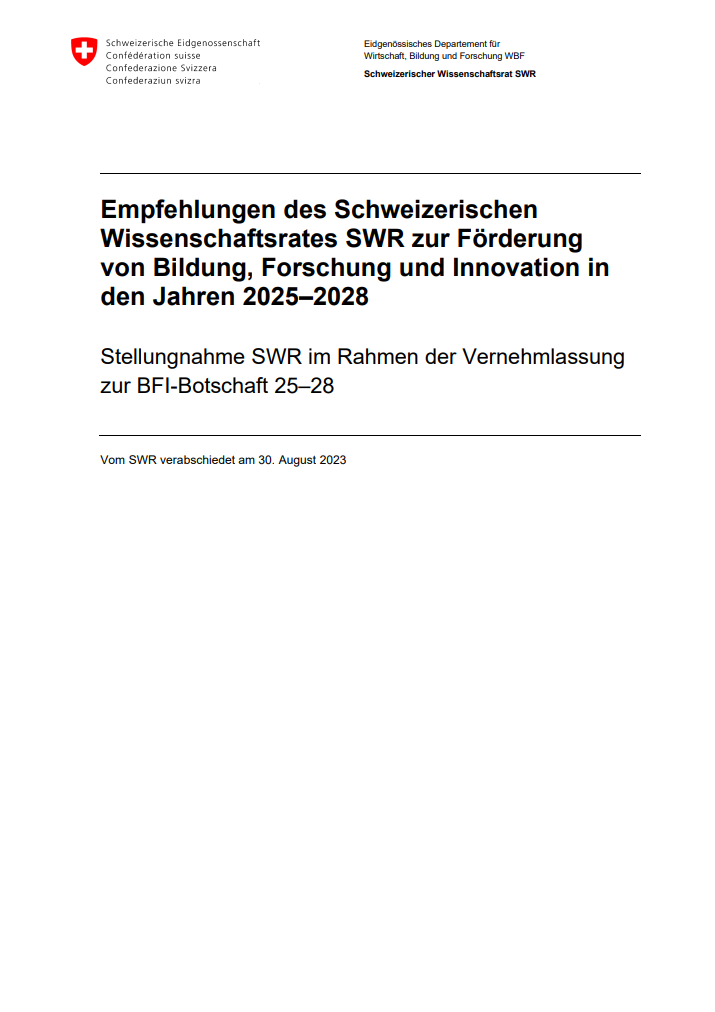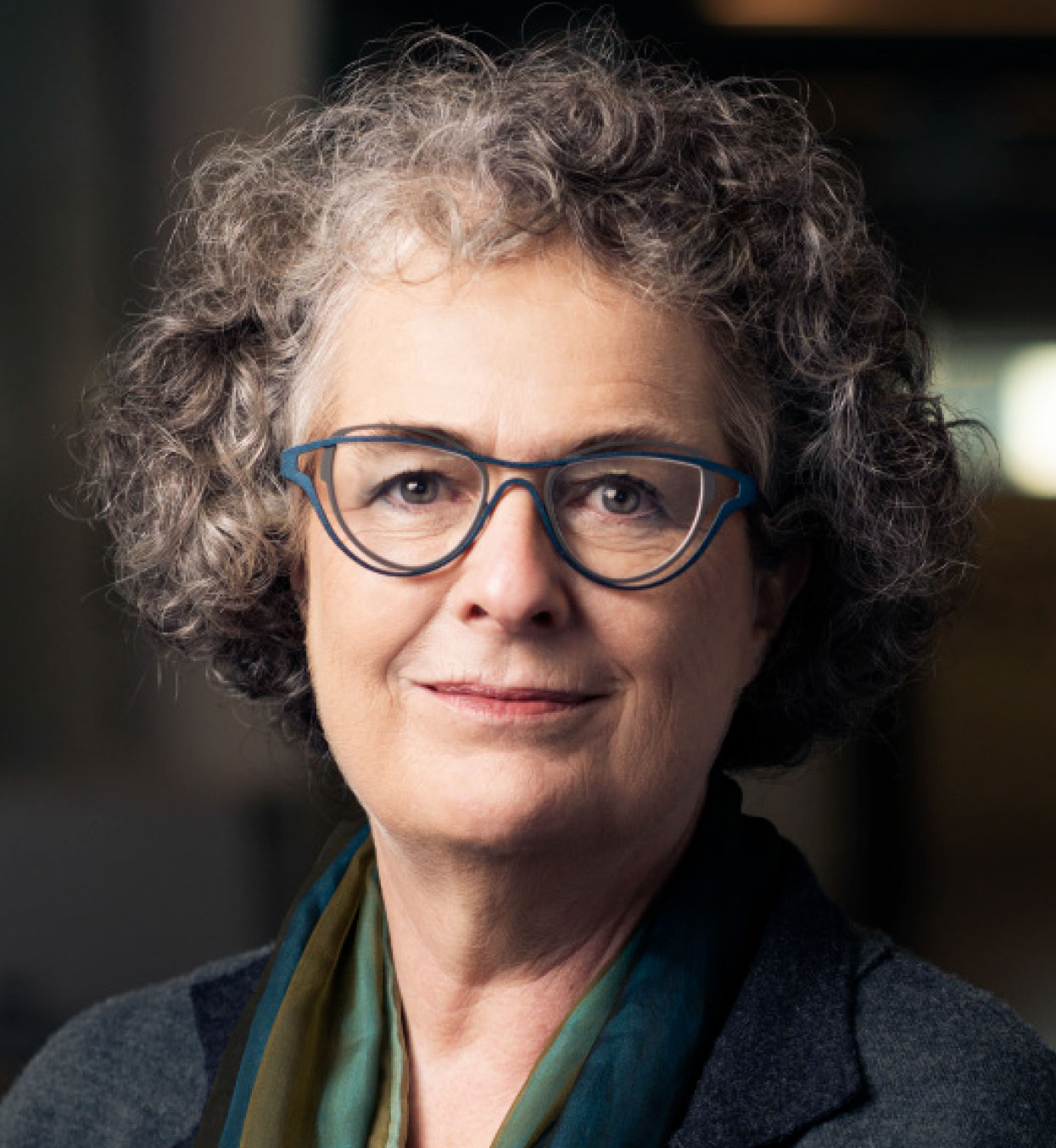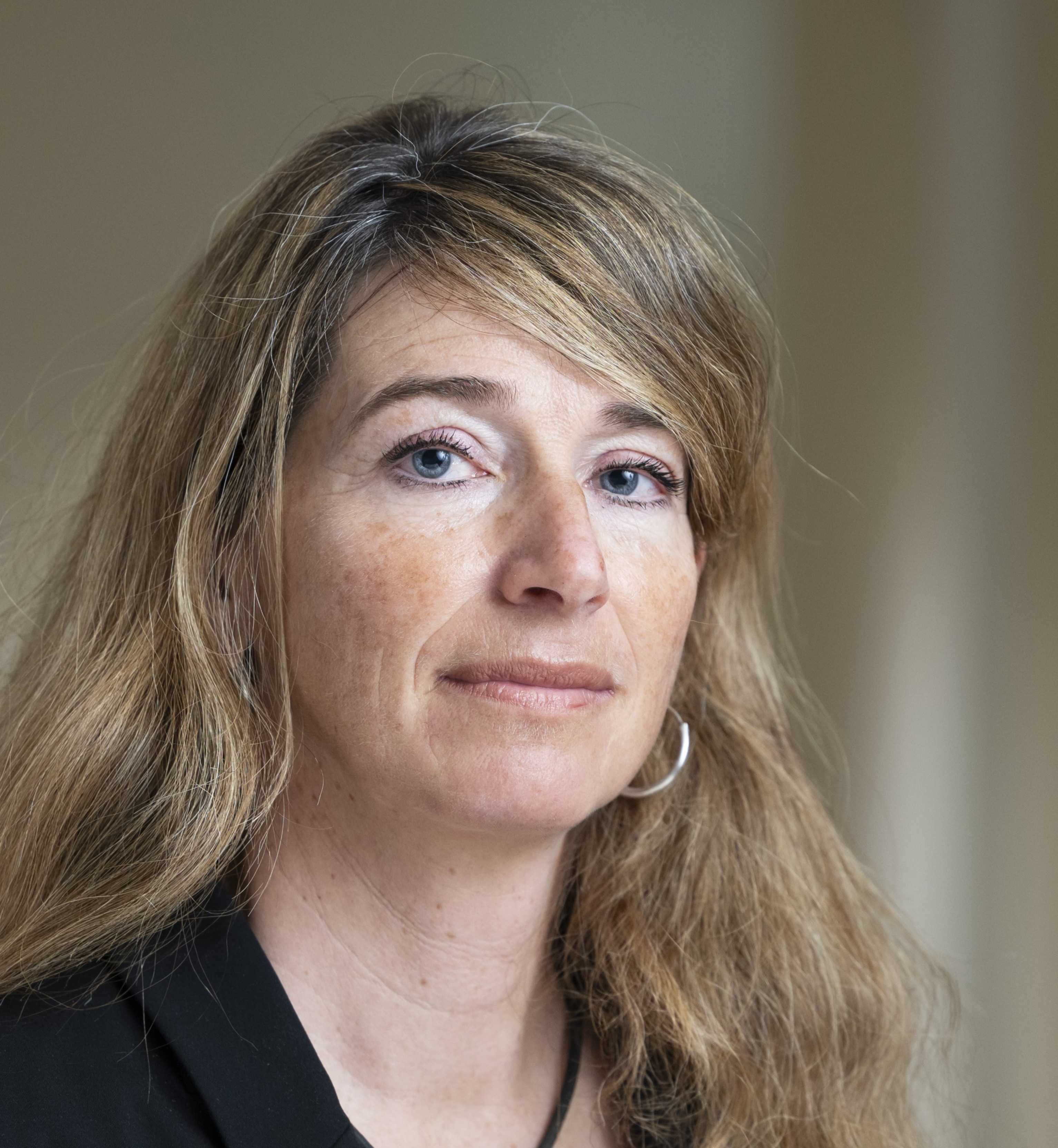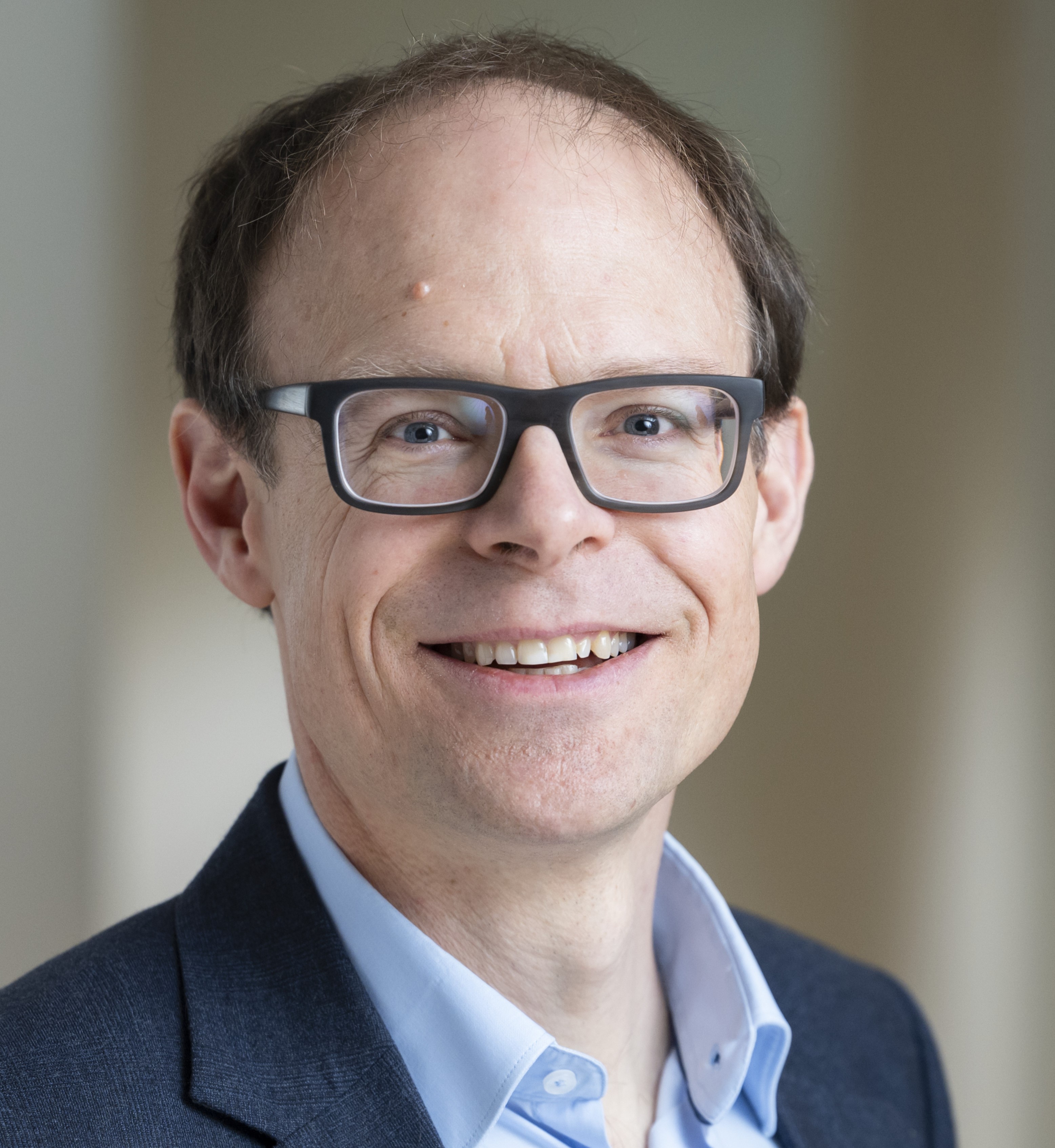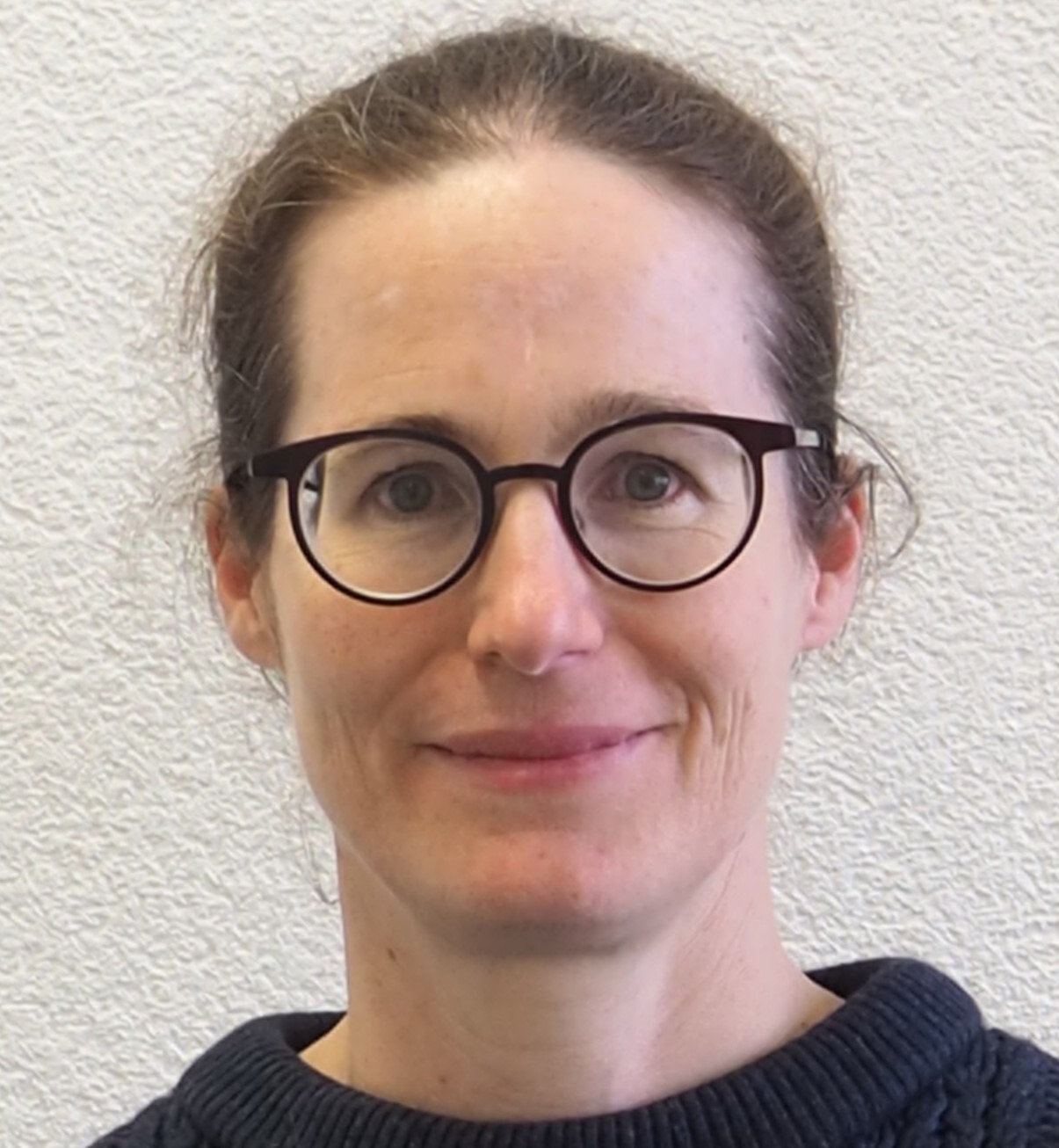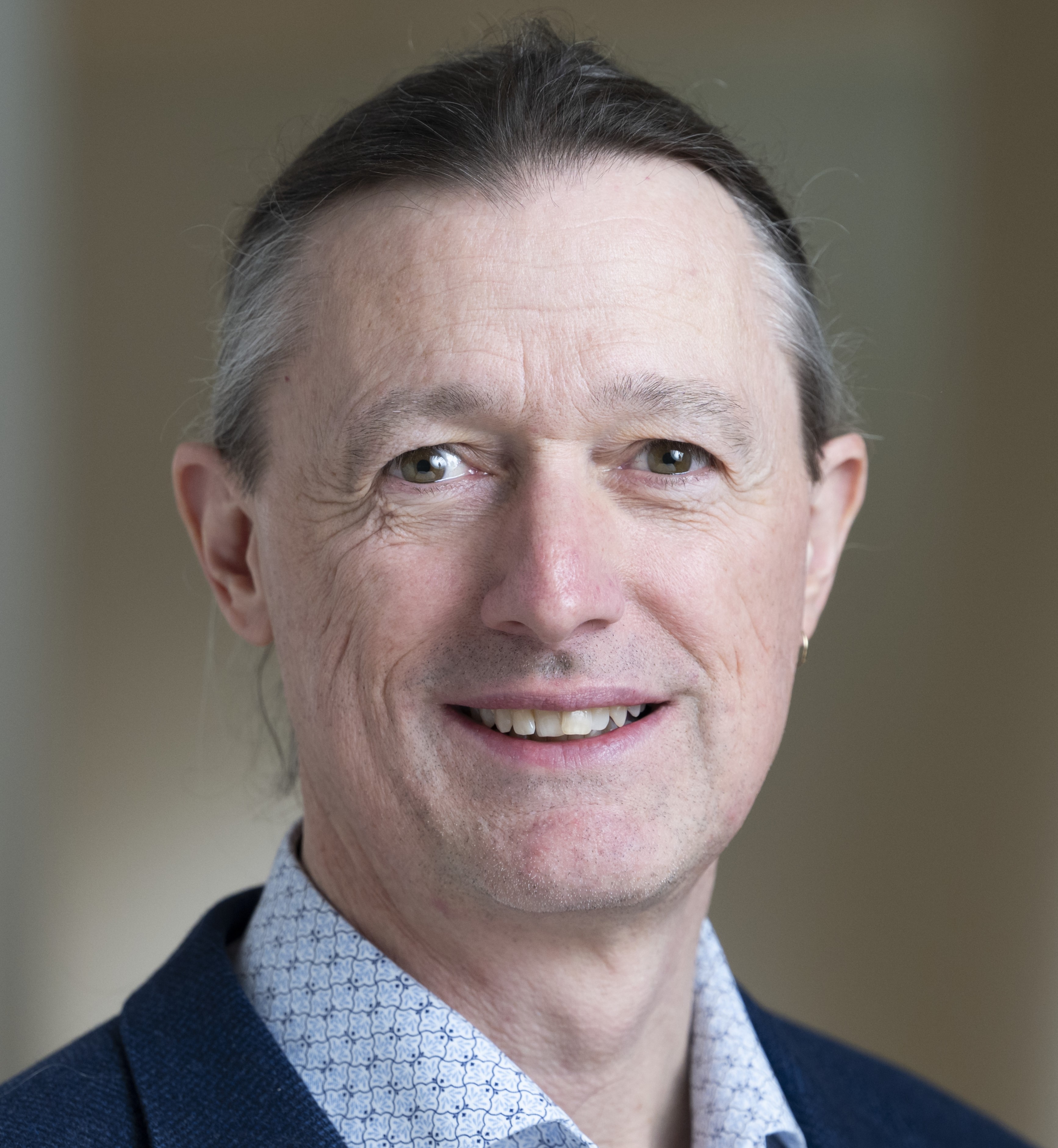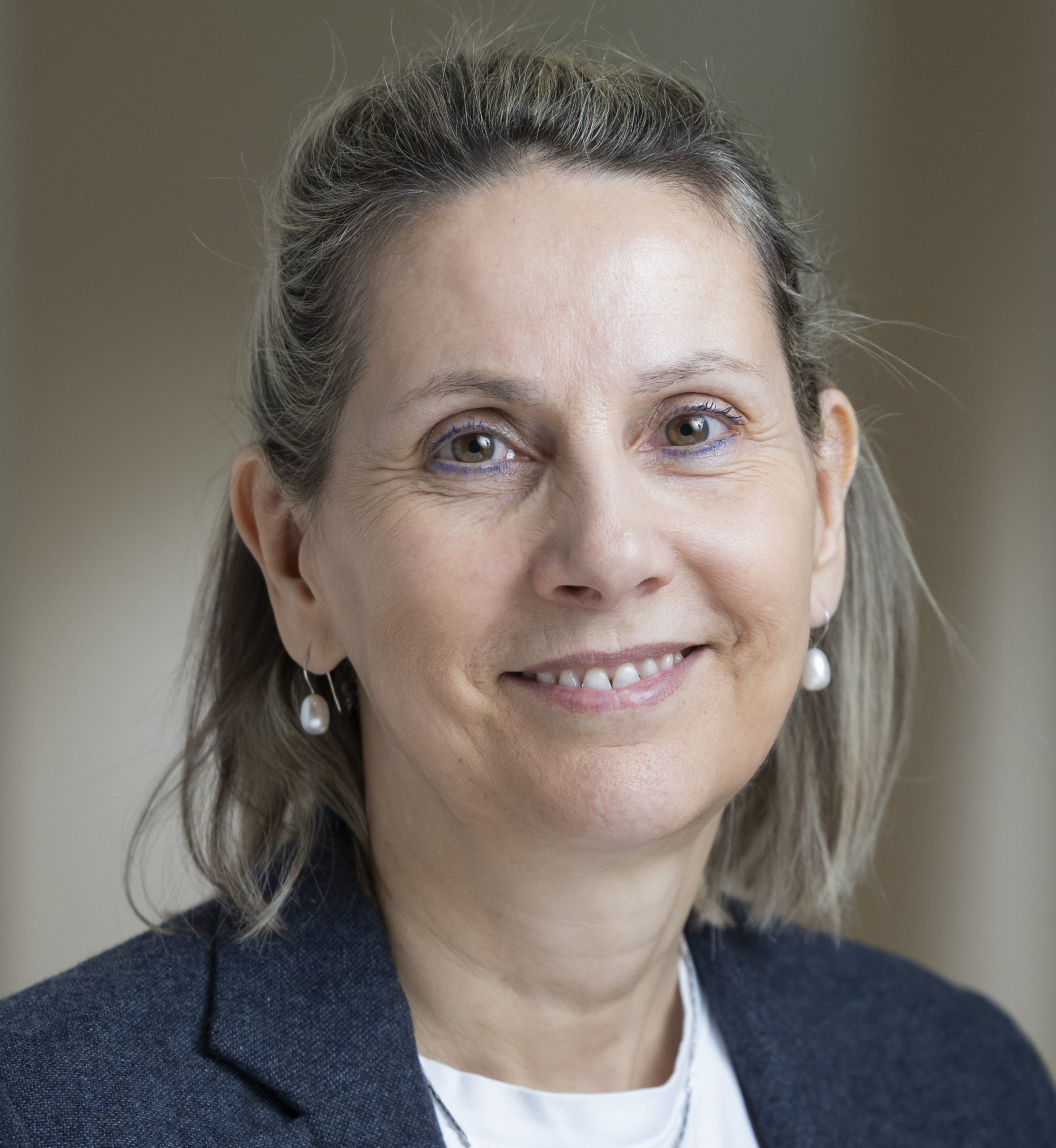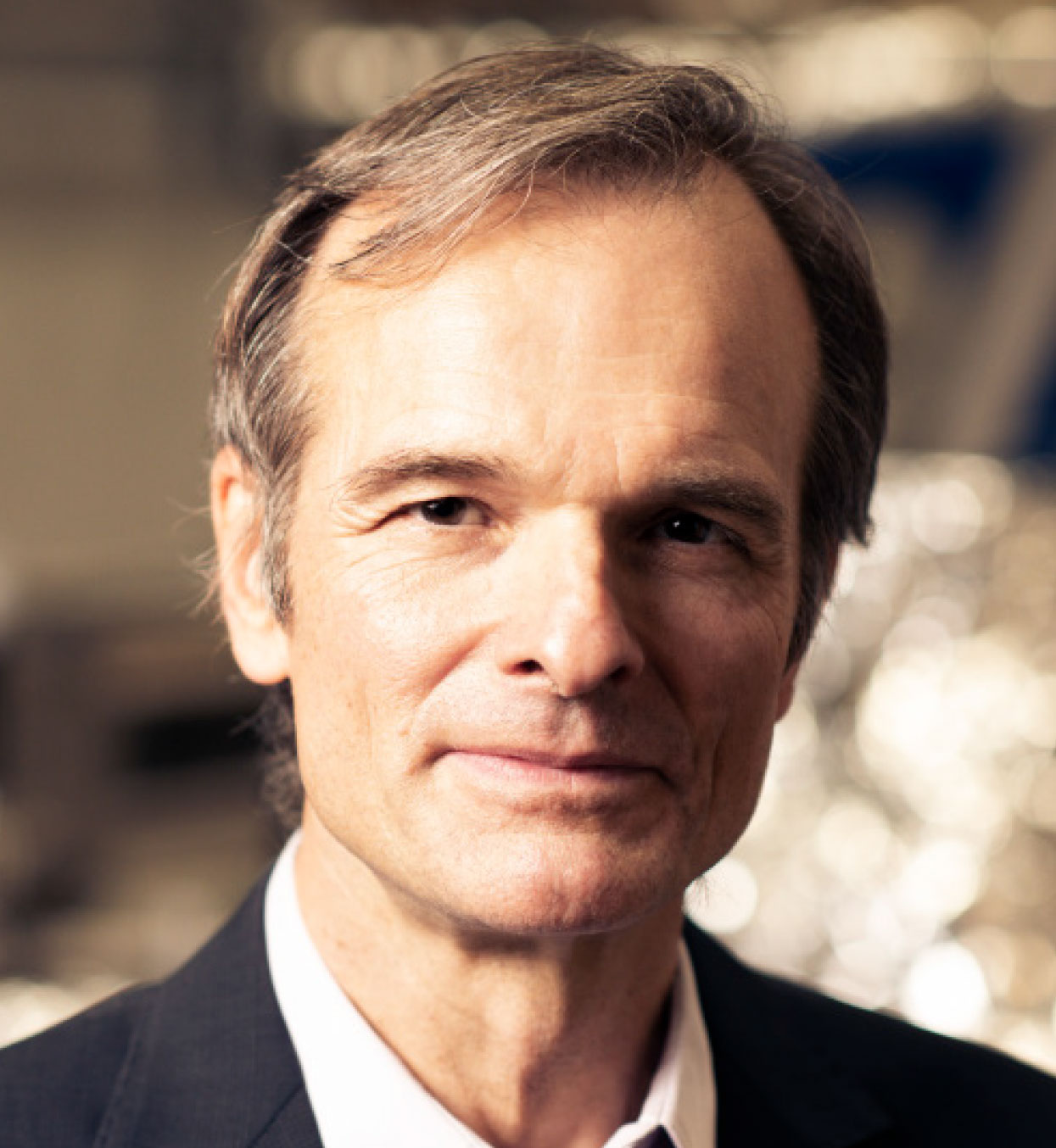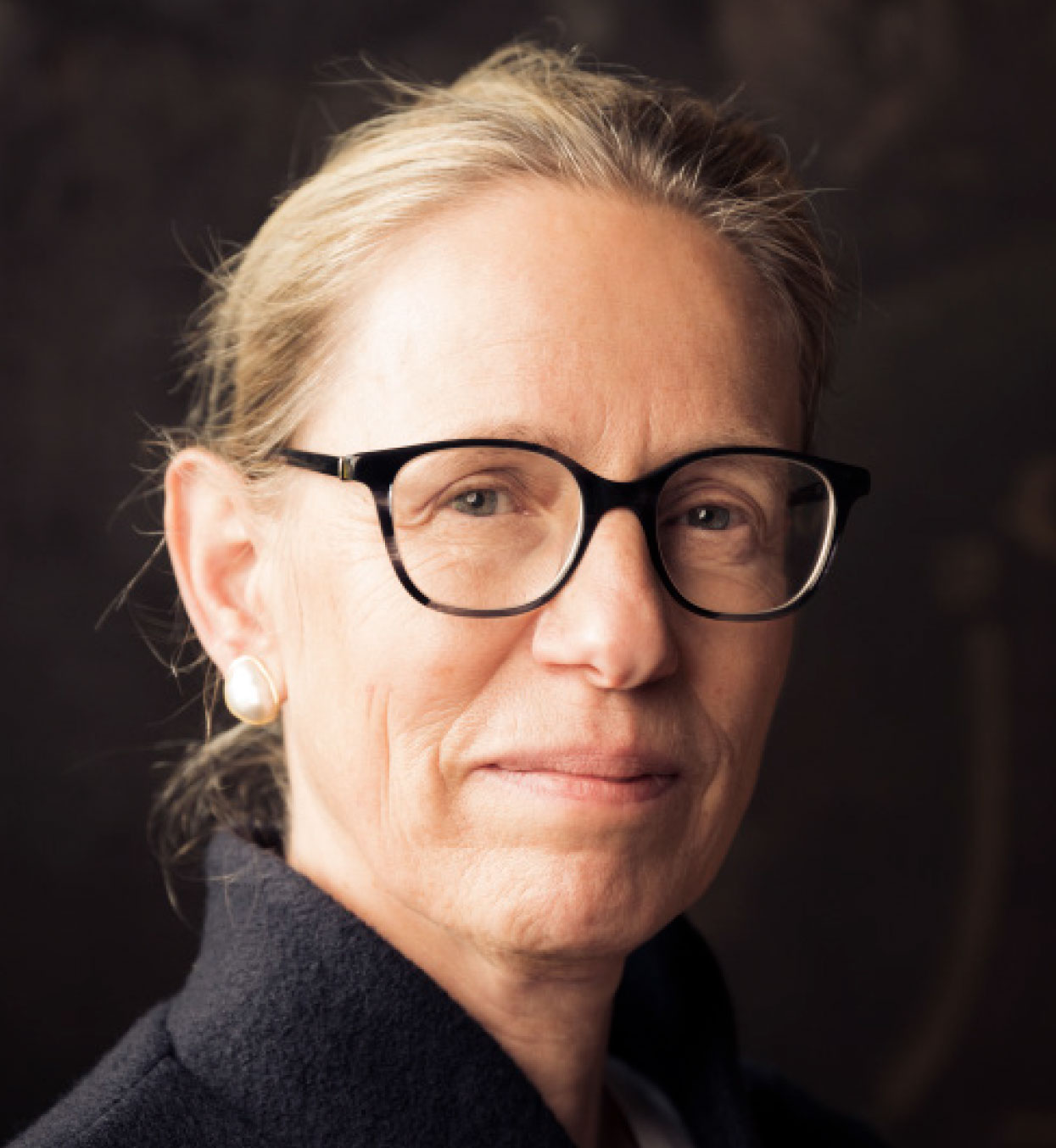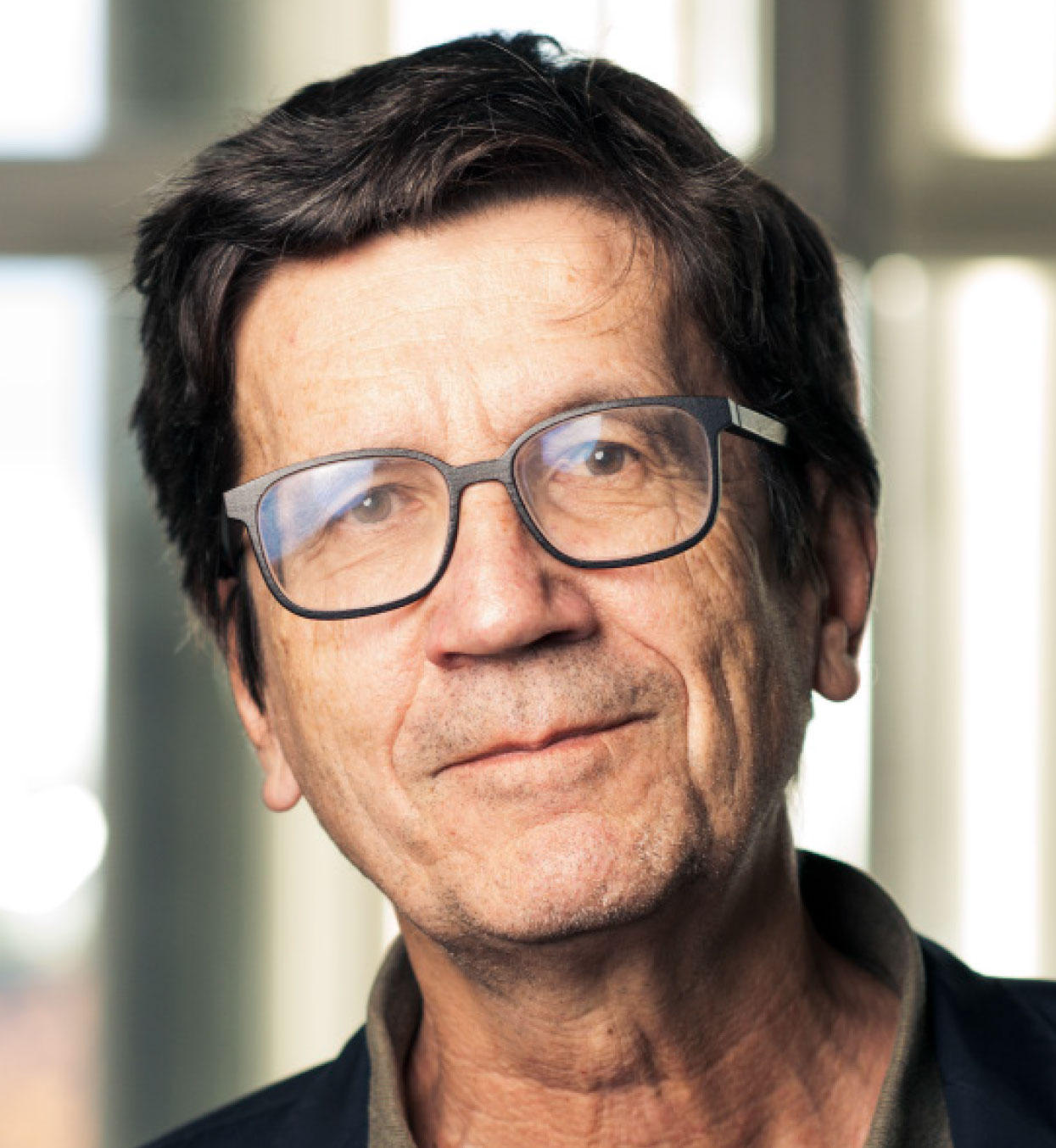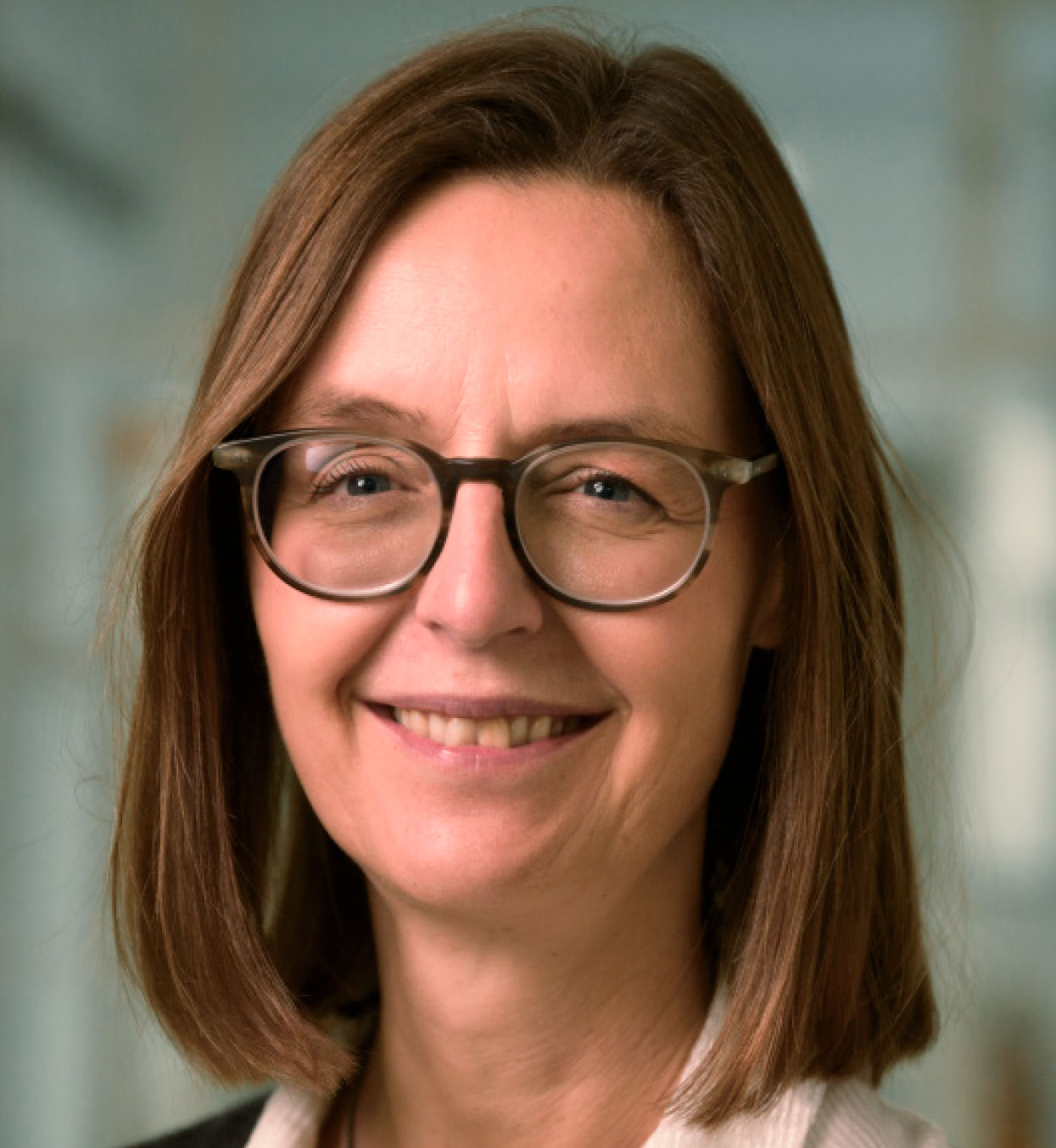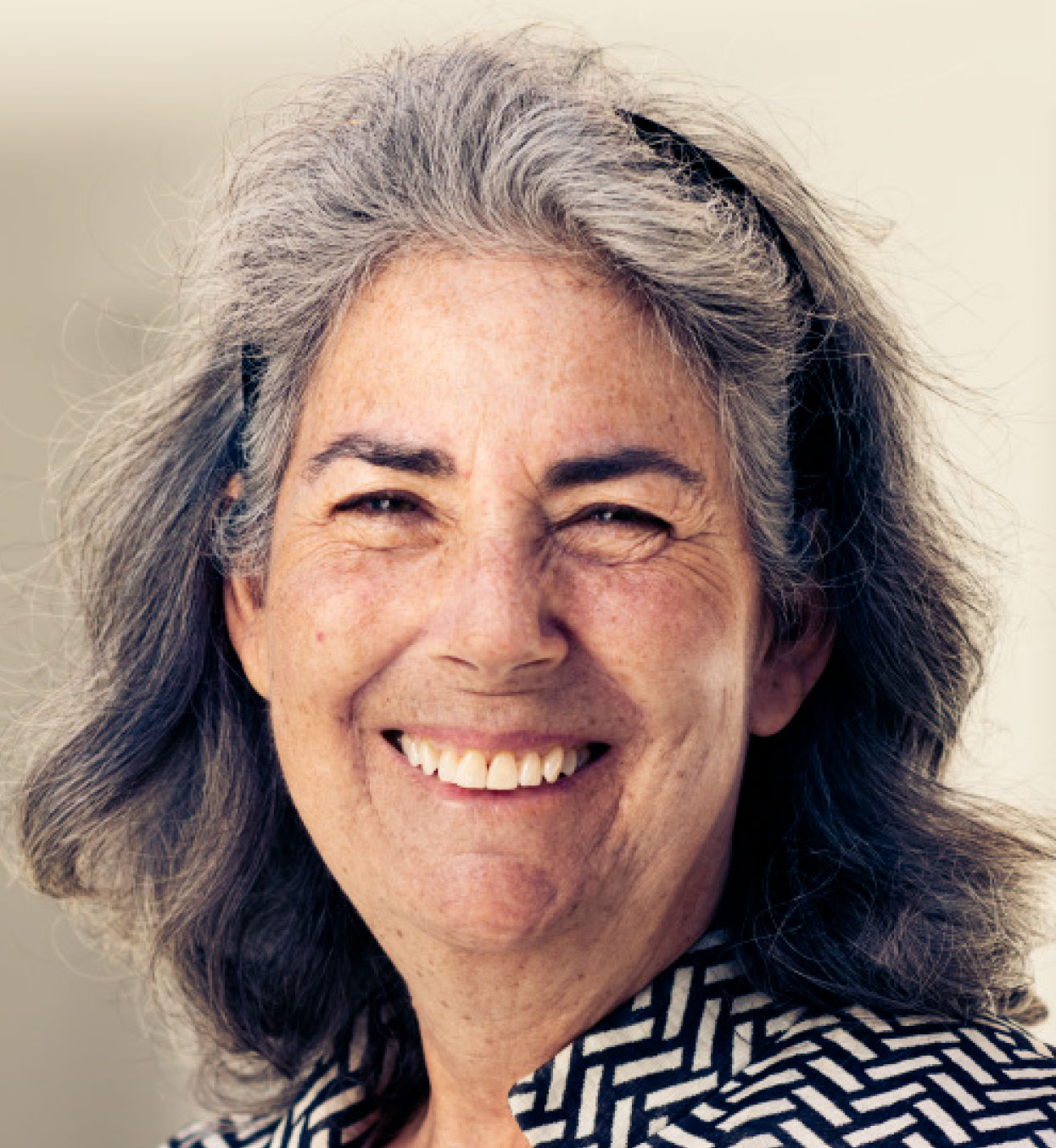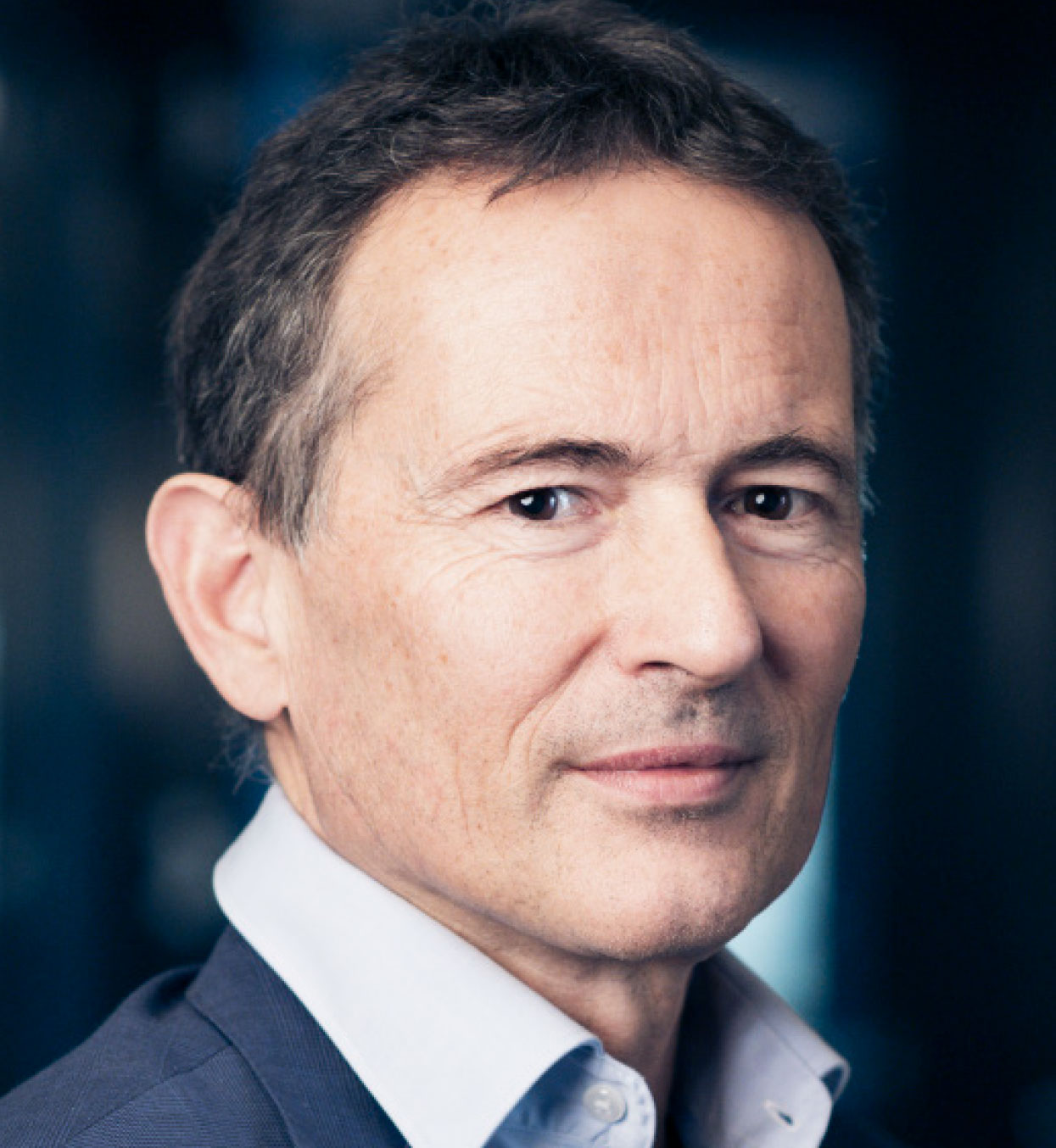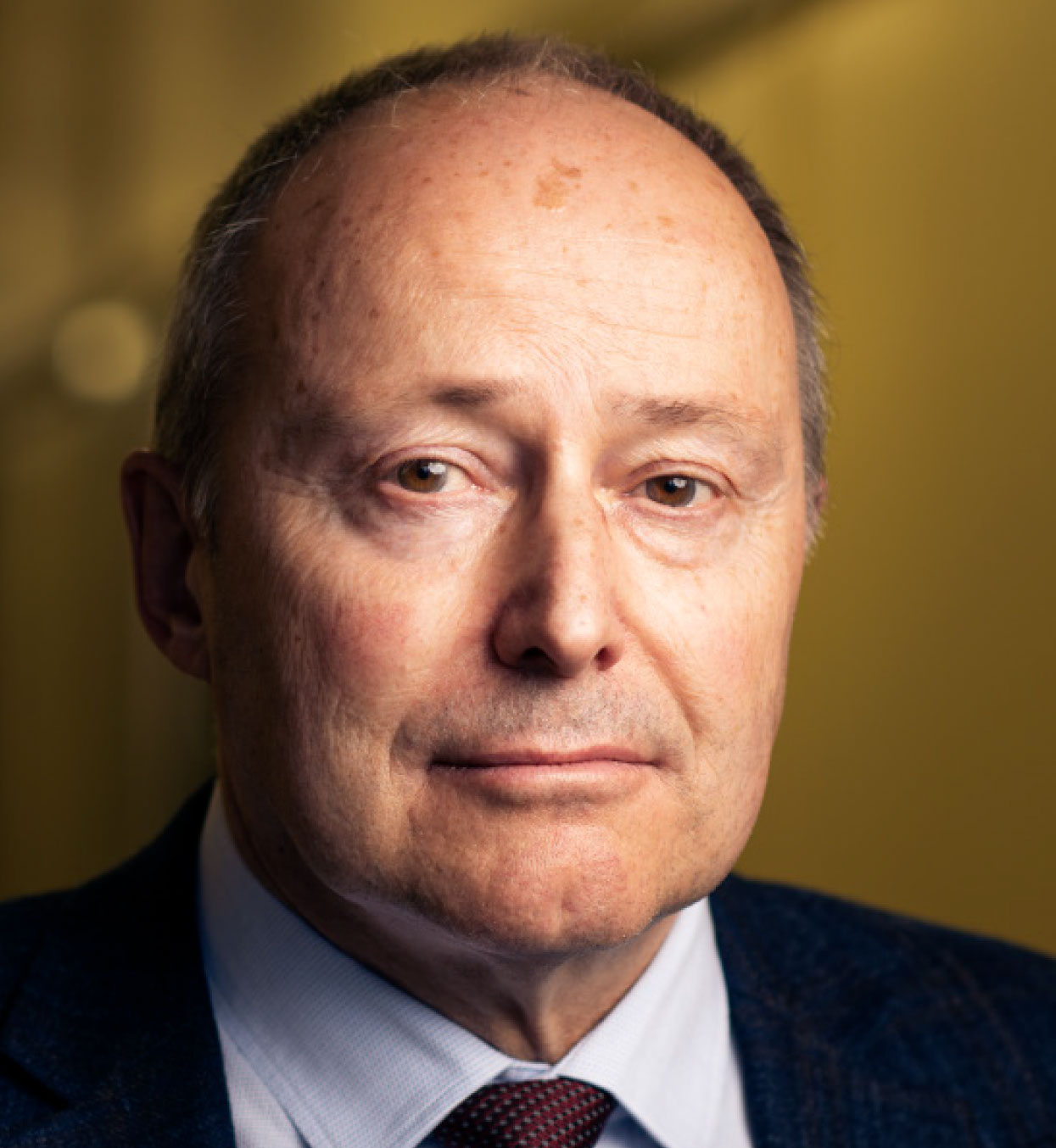The Swiss Science Council 2024–2027
The Swiss Science Council (SSC) has started the 2024–2027 term of office with five new members. At its meeting of 26 and 27 February 2024, it outlined the first key challenges for science, higher education, research and innovation policy in the coming years. The SSC also emphasised that education, research and innovation will require more federal funding and new impetus in the coming years than the Federal Council has foreseen.
"The relevance of education, research and innovation is increasing," stated SSC President Sabine Süsstrunk after the first meeting of the newly constituted Council. "We are convinced that the authorities and the administration will give more importance to scientific policy advice – and thus to the SSC – after the Covid-19 crisis. We perceive a willingness on the part of all those involved to improve cooperation."
"Research and innovation 4.0", "Improved coordination of education, research and innovation" and "Science with and for society" are the first keywords for which the SSC will specify the priorities of its 2024–2027 Working Programme in the upcoming weeks. It is already apparent that there will be an SSC work package on Artificial Intelligence, among other things, as this technology is massively changing education, research and innovation (ERI). The Council will also continue its efforts to implement its latest recommendations for the adequate digitalisation of the healthcare system and for mission-oriented research and innovation in Switzerland.
More funding for the ERI sector
It is with concern that the SSC has taken note of the Federal Council’s plans for the ERI sector (consultation on the ERI Dispatch 25–28) and of the latest decisions to cut loosely earmarked expenditure. On the one hand, the Federal Council wants Switzerland to maintain a leading position in the ERI sector, which is fundamental to the country's welfare. On the other hand, the financial decisions are primarily characterised by the difficult financial situation.
The ongoing non-association with the European Union's education, research and innovation programmes is a major challenge in itself. The SSC therefore fears that without an average annual real growth in funding of at least 2.5 %, Switzerland's leading position in the ERI sector cannot be maintained. The peril lies in the gradual erosion, with its repercussions only becoming evident once it is too late.
Advising the federal government since 1965
The Swiss Science Council SSC is the advisory body to the Federal Council for all issues related to science, higher education, research and innovation policy. The Council has for 59 years been working to optimise the Swiss education, research and innovation landscape. It is independent and does not award any funding. The SSC always takes a long-term perspective and is consistently committed to the good of the entire system.
The Council
President
New members
Current members
Open Letter of European STI Councils and Advisory Bodies and other Science Organisations on the Participation of Switzerland under Horizon Europe
Over the last years, the Swiss Confederation and the European Commission held complex negotiations about market access, which unfortunately did not result in a successful outcome. Hopefully, new ways will be found to overcome this difficult situation and clarify the relationship.
The signatories of this letter would like to underline the importance of continuing the long established and mutually beneficial cooperation between the EU and Switzerland in the domain of research and innovation. Swiss participation in European FPs already started in the 1980s. As of 2004, Switzerland has been an Associated Country, with a short-term interruption as partially Associated Country between 2014 – 2016. Under the previous FPs, Switzerland has made important contributions in many fields, such as the health sector, climate, and quantum technologies. Furthermore, Switzerland is a founding member of the European Space Agency as well as COST and EUREKA and together with France host country to the European Organization for Nuclear Research (CERN).
Switzerland is home to world-class research institutions and ranked among the most competitive and innovative countries for years. As an open nation to research and innovation, it contributes through its collaborations and co-authorships to the excellence of the European Research Area (ERA). Downgrading Switzerland to a Third Country would severely limit its expertise being brought into Horizon Europe projects tackling today’s and tomorrow’s global challenges. We are convinced that this would lead to a lose-lose situation, putting successful cooperation in strategic areas at risk and ultimately weaken the ERA as a whole.
Global competition in R&I is on the rise and becomes more and more multipolar; geopolitical tensions worldwide increased as well. At the same time, the world faces unprecedented challenges such as the post-Covid recovery and Climate Change. Therefore, Europe should stand together and unite its forces.
As Science, Technology, and Innovation organisations, we are sincerely convinced that a full association of Switzerland to Horizon Europe will ensure the continuity of a successful collaboration between the Swiss Confederation and the European Union in Research and Innovation.
Date of Publication: 07.06.2021 (Last Update of Signatories: 19.07.2021)
Signatories:
Austrian Science Council; Estonian Academy of Sciences; Flemish Advisory Council for Innovation & Entrepeneurship; Latvian Council of Science; National Research, Development and Innovation Office of Hungary; Research Council of Lithuania; The Danish Council for Research and Innovation Policy; Academia Europea (The Academy of Europe); Aurora Universities Network; European Consortium of Innovative Universities (ECIU); Coimbra Group; League of European Research Universities (LERU); The Guild; Universities from the Capitals of Europe (UNICA); Universities of Applied Sciences for Europe (UAS4Europe); Research Foundation – Flanders (FWO); Conference of European Schools for Advanced Engineering Education and Research (CESAER); Science Europe; Croatian Science Foundation; Dutch Advisory Council for Science, Technology and Innovation (AWTI); Max Planck Society; EuroTech Universities Alliance; Eucor – The European Campus; Foundation for Polish Science; Czech Science Foundation; Luxembourg National Research Fund; National Science Centre – Poland; IDEA League; Development and Innovation Council, Czech Republic; European University Association (EUA); Fund for Scientific Research (FNRS), Belgium; Vinnova – Sweden; Conseil des recteurs – Belgium
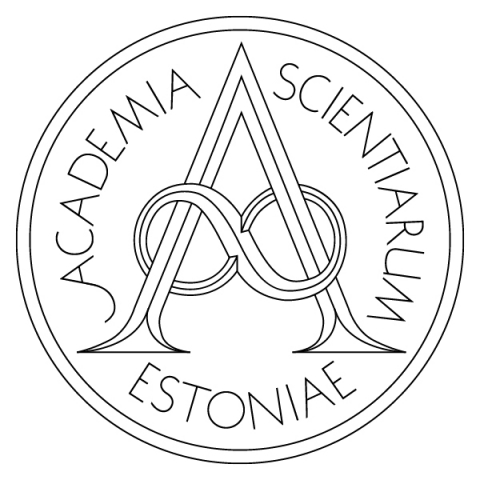 |
|||
 |
|||
 |
|||
 |
 |
|
|
| |
|
||
| |
|||
| |
|
||
PDF version of this letter (with logos)
Contact information and coordination of this initiative:
Swiss Science Council SSC
Joël Graf (Scientific Adivsor):
Statement of European Science, Technology and Innovation Councils on the Current Situation of the Academic Community in Iran
The signatories of this statement are deeply concerned about the situation of the
academic community in the Islamic Republic of Iran. For several weeks, protests have
taken place at various Iranian universities where many students, professors, and other
university members have experienced violence and/or been arrested by security
forces.
The European Science, Technology and Innovation Councils listed below express
their solidarity with the members of the academic community in Iran. They call on the
Iranian authorities to protect and respect the right to academic freedom and the right
to freedom of expression according to the Universal Declaration of Human Rights.
9 November 2022
Please find below the translation of the statement in Persian (Farsi)
بیانیھ انجمن ھای علمی، فناوری و نوآوری اروپا در مورد وضعیت فعلی جامعھ علمی و دانشگاھی ایران
امضاکنندگان این بیانیھ بسیار نگران وضعیت جامعھ دانشگاھی در جمھوری اسلامی ایران ھستند. چندین ھفتھ است کھ تظاھراتی
در دانشگاه ھای مختلف ایران برگزار می شود کھ در آن بسیاری از دانشجویان، اساتید و دیگر اعضای دانشگاه مورد خشونت
نیروھای امنیتی قرار گرفتھ یا توسط آنان دست
گیر شده اند.
انجمن ھای علمی، فناوری و نوآوری اروپا کھ در زیر نام برده شده اند، ھمبستگی خود را با اعضای جامعھ آکادمیک در ایران
اعلام می کنند. آنھا از مقامات ایران می خواھند کھ از حق آزادی دانشگاھی و حق آزادی بیان بر اساس اعلامیھ جھانی حقوق بشر
حمایت کنند و بھ آن احترام بگذارند.
۹ نوامبر ۲۰۲۲
List of signatories (logos on next page)
لیست امضا کنندگان
Austrian Council for Research and Technology Development (RFTE)
Danish Council for Research and Innovation Policy (DFiR)
Dutch Advisory Council for Science, Technology and Innovation (AWTI)
Research, Development and Innovation Council, Government of the Czech Republic
(RVVI)
Flemish Advisory Council for Innovation and Enterprise (VARIO)
German Commission of Experts for Research and Innovation (EFI)
German Science and Humanities Council (WR)
Portuguese Foundation for Science and Technology (FCT)
Swiss Science Council (SSC)
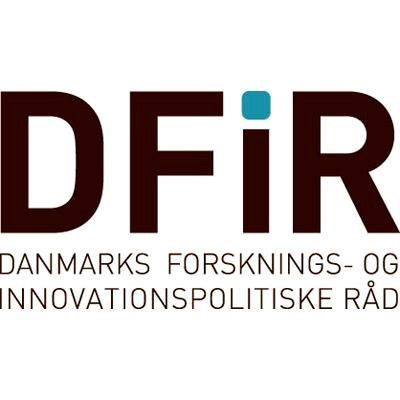 |
|
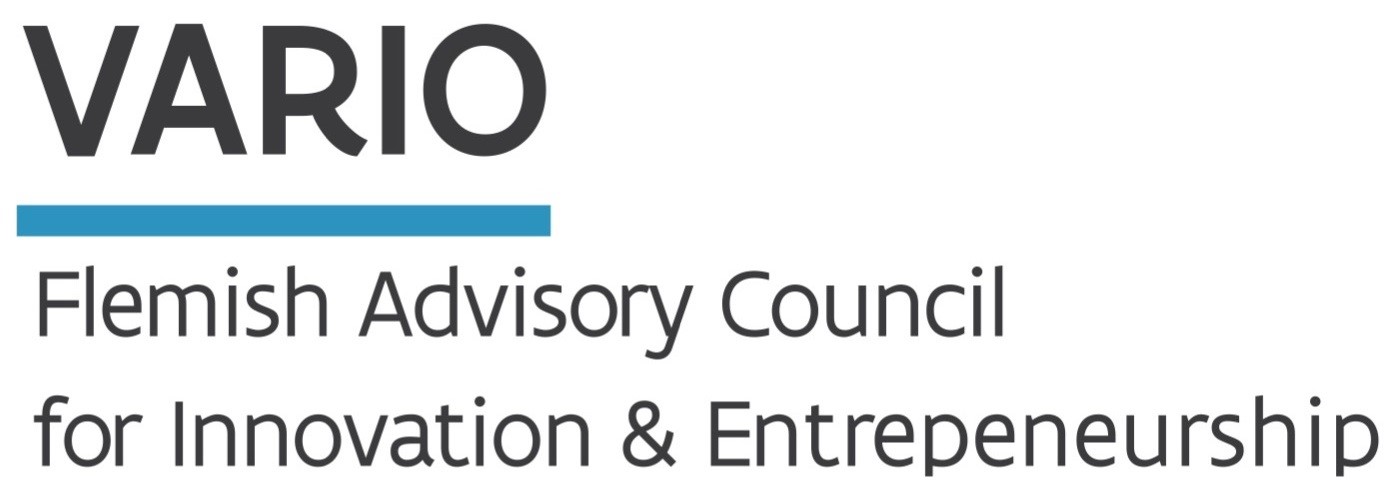 |
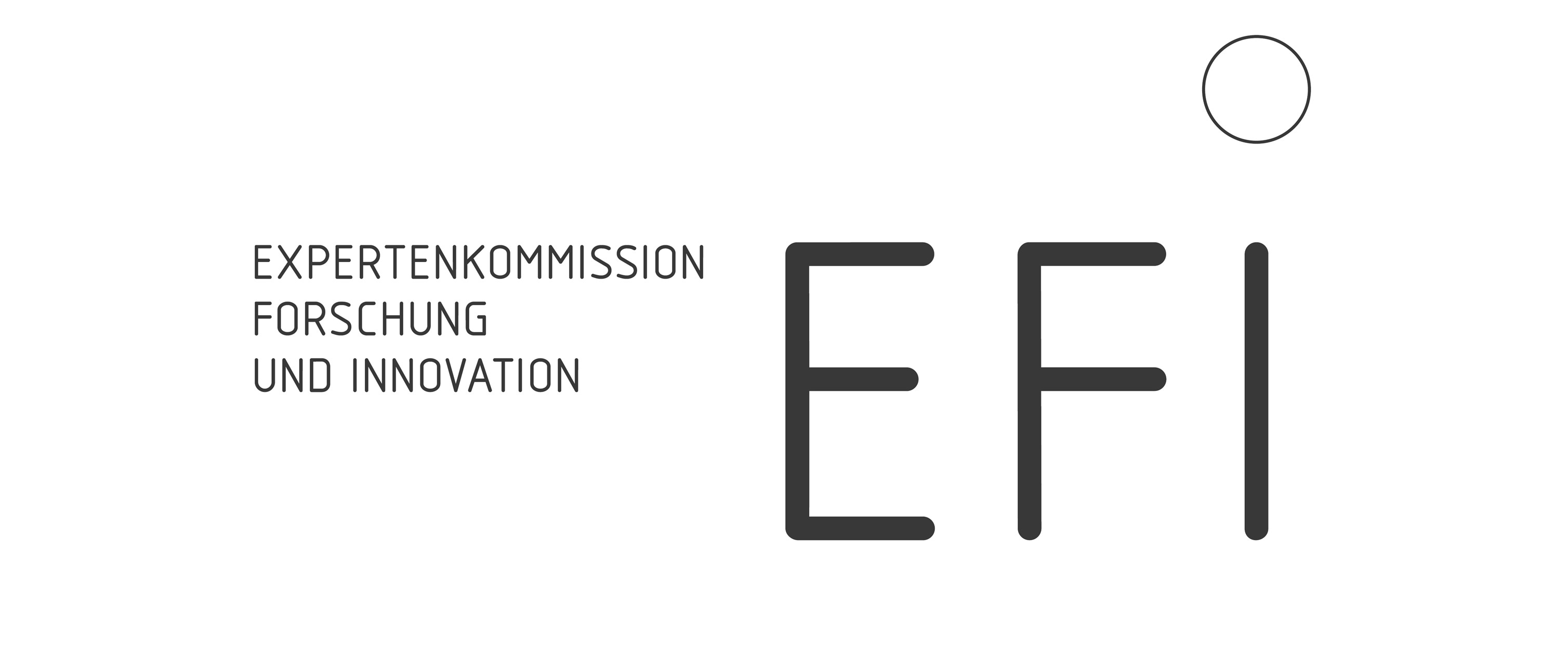 |
 |
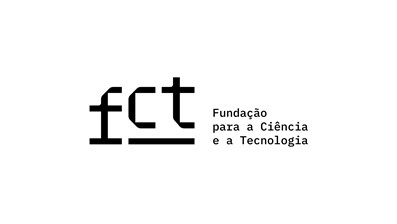 |
 |
|
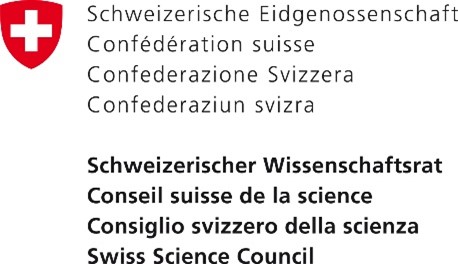 |
 |
History
Since its foundation in 1965, the Swiss Science Council SSC has undergone three name changes and numerous legislative revisions. Its identity has evolved in tandem with that of the Swiss education, research, and innovation system.
In the years following the Second World War, Western countries, Switzerland among them, pursued an internationalist science and research policy with the aim of expanding the scientific understanding of the world and improving the common lot of humankind. A number of universities, research centres, and scientific organisations were founded in Switzerland with this expressed purpose in mind.
This expansion of the ERI landscape formed the backdrop of the Federal Council’s decision to found the SSC in 1965. This not only shaped its obligations but also its identity. “We consider gathering and coordinating fruitful ideas and resources from all parts of our population to be one of our main functions,” the Council wrote in 1967. It was saw itself as a “small militia body” with unique responsibilities and a commitment to the common good.
A good ten years after its foundation, the SSC began to ask itself more existential questions. Was the SSC “simply a think tank or should it draft policy proposals”? Should its remit be sectoral or horizontal? Was it a generalist or a specialist? Together with key stakeholders of the ERI landscape, the Council came to the conclusion that its core obligation was to adopt “a global and future-orientated perspective on a whole range of issues”. The Council’s main functions were to “create mental frameworks” and “initiate political activities” without trying to determine them.
The question how the SSC should act within this framework was formulated more clearly in 1987. Over the course of the 1980s, the SSC’s responsibilities in preparing and setting goals for the Federal Council’s research policy expanded. This lead the SSC to wonder whether it was a “council of expertise” or a “council of negotiation”.
On the one hand, it had to provide stakeholders with “new proposals regarding the preferred structure and character of the higher education and research system”. On the other hand, it had to provide “comprise solutions for the problems at hand” to the relevant authorities. The Council subsequently experimented with different models that tried to combine the best of both worlds in order to fulfil its manifold functions.
In the 1990s, the tasks of the SSC were further expanded to include science and higher education policy, anticipatory research policy, technology policy, and technology assessment. The accumulation of so many tasks led to the Council to perceive itself as the “voice of science” by the turn of the millennium.
However, the political scene as well as the Federal Administration were evolving in another direction. The post-war ideal of long-term planning, which had been the Council’s main approach until that time, gave way to the principle of situational governance. Its recommendations were less heeded in the ensuing years and the problem that these were not legally binding became apparent. In 2008, the SSC lost some of its tasks, such as anticipatory research policy and technology assessment, and thus resources also.
In more recent years, the SSC has managed to positioned itself more prominently within the ERI landscape and has spoken out on a number of pressing issues, such as social selectivity and digitalisation.
Due to the Covid-19 pandemic and the strained relations between Switzerland and the European Union, there is currently a lot of uncertainty in the Swiss ERI system, which entails many challenges and opportunities. The SSC is deeply involved with both of these issues and, as so often in its history, is also influenced by them.
Principles
The Swiss Science Council SSC takes a long-term perspective and follows a holistic approach with regard to the Swiss education, research, and innovation system. The SSC is independent and transparent, and guided by principles of relevance, evidence and openness.
Principles
Relevance: Science policy advice provides evidence-based solutions to fundamental issues. Every four years, the SSC identifies and addresses a set of overarching themes that are relevant to the future development of the Swiss ERI system.
With the publication of the report Social Selectivity, for example, the Council shed light on the deep-rooted problem of social inequality in the Swiss ERI system and heightened public and political awareness of this issue.
Long-term perspective: The challenges we face and the measures we take today have far-reaching consequences. The SSC always takes a long-term perspective to anticipate challenges ahead of time, and thus work towards the continual improvement of the Swiss ERI system.
The Council published in-depth reports on quantum computing and Fintech technologies to prepare decision-makers for the potentially disruptive impact these technologies might have in the decades to come.
Holistic: The Swiss ERI system is decentralised and heterogeneous. To maintain an overall picture, the SSC does not examine policies in isolation but takes a holistic approach. The SSC is for instance just as interested in academic autonomy as in Citizen Science.
Within a specific topic, like Citizen Science, the Council examines various interrelated issues like scientific literacy and science communication to provide recommendations for the public participation in science.
Evidence: The SSC bases its policy advice on scientifically sound evidence. It mandates experts from different background and disciplines to obtain the best available evidence in order to arrive at salient conclusions.
This process is rooted in collective forms of reasoning that combines analytical rigour with deliberative argumentation, which is conducted during the Council’s workshops and plenary meetings.
Independence: Science policy advice must be responsive to stakeholders’ needs, but independent from partisan interests. While the SSC values its proximity to the government and the opportunities for mutual exchange, it remains committed to its independence.
The Council defines its own working programme, publishes position papers on important debates, and remains above political influence to tackle fundamental issues within the Swiss ERI system.
Transparency: A science advisory body should be an honest knowledge broker. The SSC maintains a transparent approach in how it selects, processes, and interprets evidence.
As an extra-parliamentary commission, the Council is accountable to politics and the public, and regularly publishes its results and activities. Individual Council members do not represent the interests of their home institutions but take responsibility for their own viewpoints and recommendations.
Openness: Democratic societies promote and rely on good scientific research, practice, and discourse. The SSC supports openness and collaborative networks within and beyond Switzerland.
By cooperating on such topics as student mobility and the free movement of talent, the Council deepens its commitment to the community of democratic values it shares with its European and international partners, thereby reaching beyond polarisation and protectionism.


